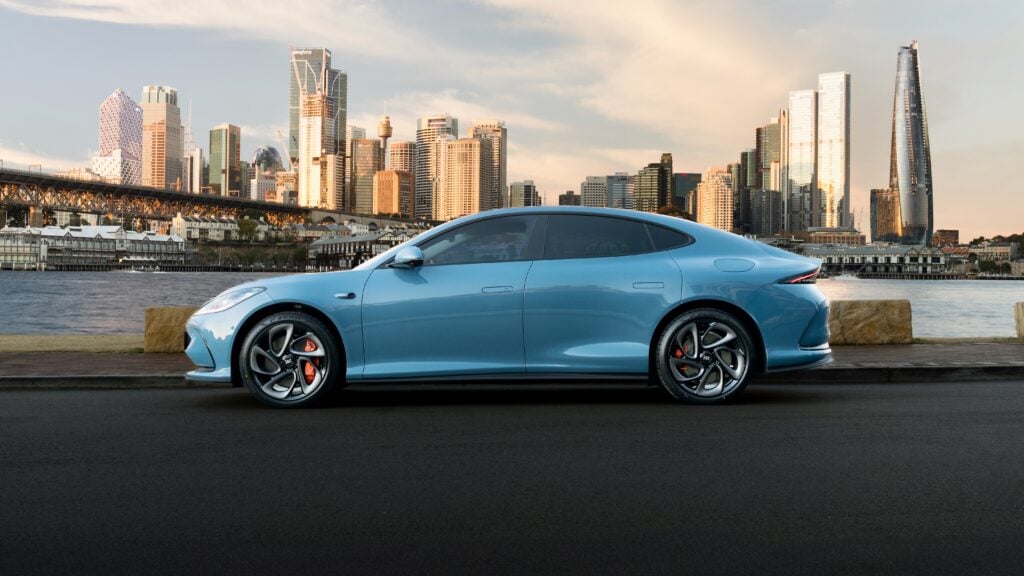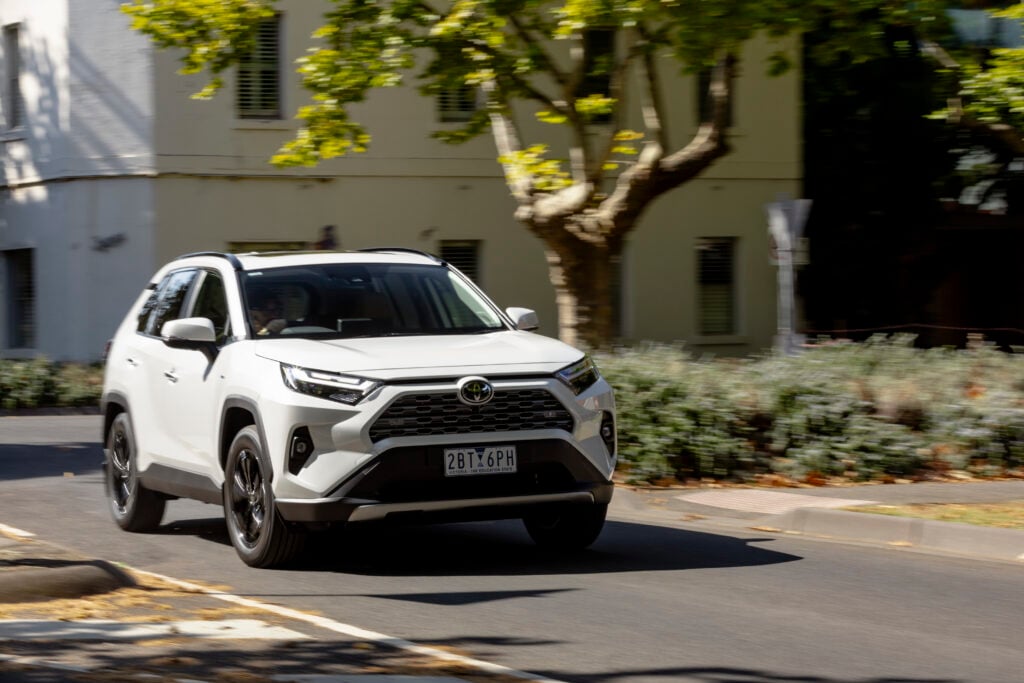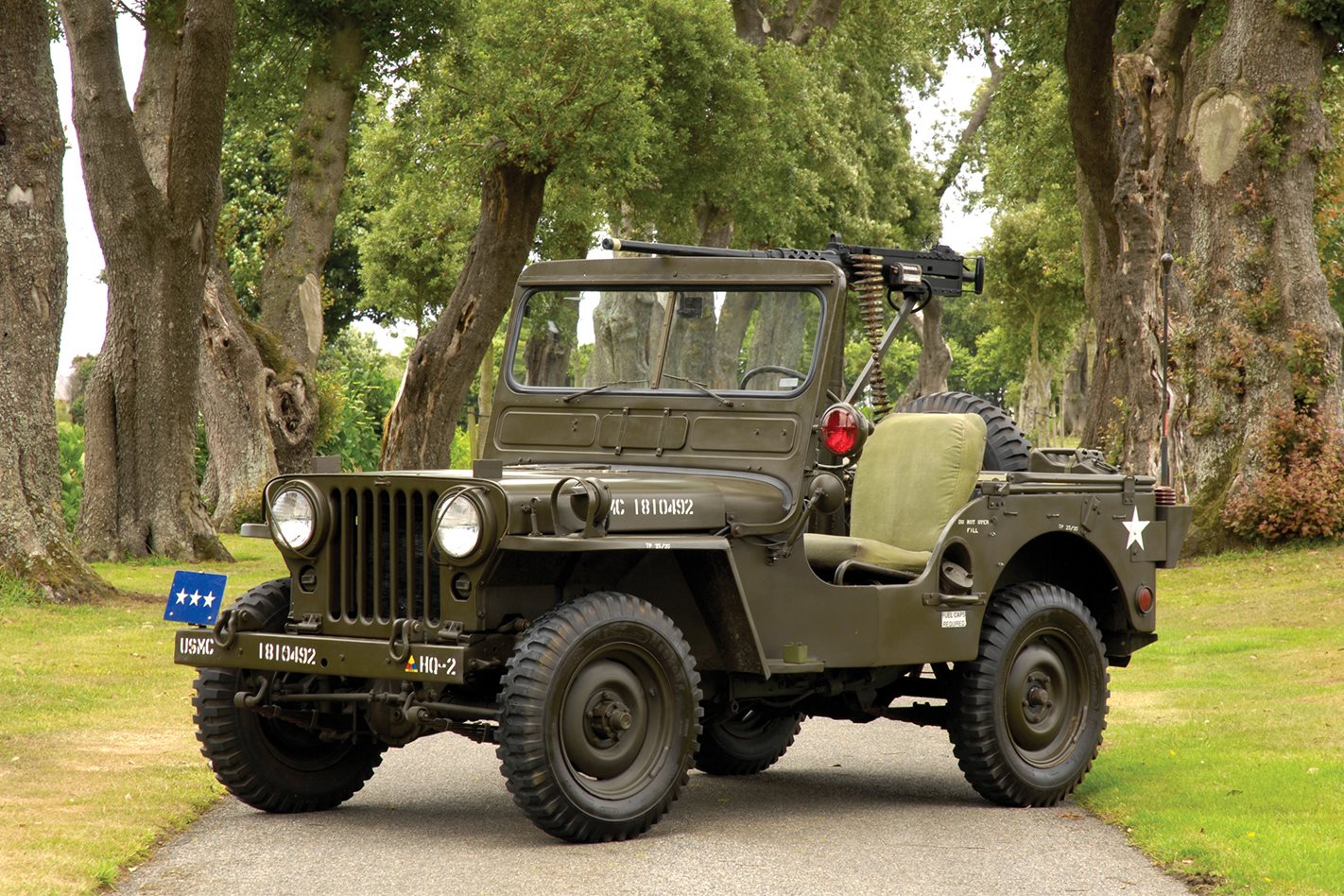
In our Fast Facts series, WhichCar delves deep into the history of automotive brands to bring you fascinating facts and intriguing information.
Here we focus on Jeep, the famous American 4×4 brand that’s been soldiering along for more than 75 years since it helped create World War II’s most iconic military vehicle.
WAR MACHINE WANTED
Willys-Overland was America’s second-largest car manufacturer, behind Ford, in the second decade of the 20th century, though it had limited success with its passenger cars before it responded to an industry-wide request in 1940 from the US Army for a “light reconnaissance vehicle”.
The vehicle requirements included a rectangular body shape, fold-down windscreen, three bucket seats, a smooth engine, a wheelbase less than 190cm, and a maximum weight of 590kg. American Bantam was first to build a prototype and was ultimately credited with its invention, though Willys won the contract to be primary manufacturer with a modified version of that vehicle – which it called the Quad before changing to MB.
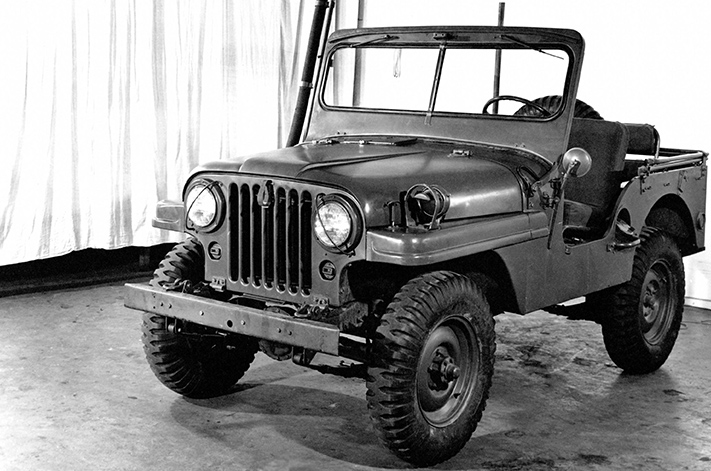
WHAT’S IN A NAME?
Fellow contract competitor Ford ended up producing more than 275,000 units of the battle ‘taxi’ to help meet demand, calling its version the Model GPW (originally known as the Pygmy). The now-famous Jeep moniker began as a nickname of vague origins. Various theories range from a contraction of GP (for General Purpose vehicle) to a bizarre animal character called Eugene the Jeep from the Popeye cartoon.
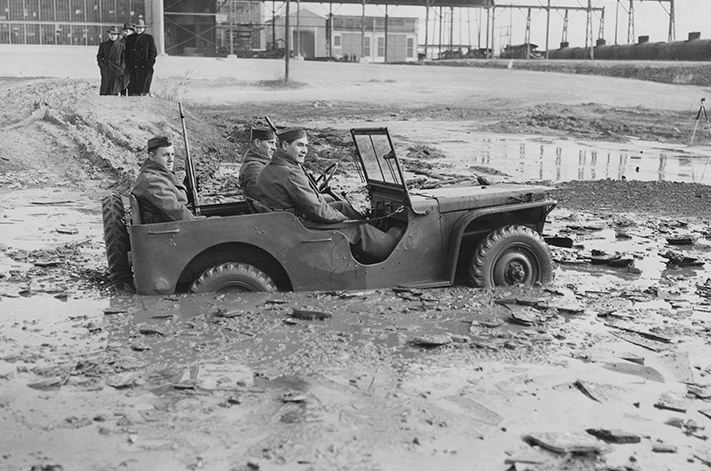
TRADEMARK WAR
Willys filed to trademark the Jeep name in 1943, which it finally received in 1950 after American Bantam had gone bankrupt and Ford lost its legal fight. It hadn’t been hanging around, though, producing the first civilian ‘Jeep’ – the CJ-2A – in 1945. Featuring a tailgate and side-mounted spare wheel, the model was aimed at farmers who could use it as a load-carrying ute or an agile ‘tractor’ for pulling plows and mowers. The original, 1948 Land Rover Series 1 was inspired by the Jeep.
JEEPS FOR THE ROAD
The 1946 Willys Wagon encased occupants in an all-steel body, and with the Jeep’s 4WD underpinnings could be considered a forefather of the SUV – proving popular with America’s post-war suburban explosion. Jeep further focused on the passenger-car market with the 1948 Jeepster, which powered the rear wheels only and featured plastic side curtains instead of roll-up windows.
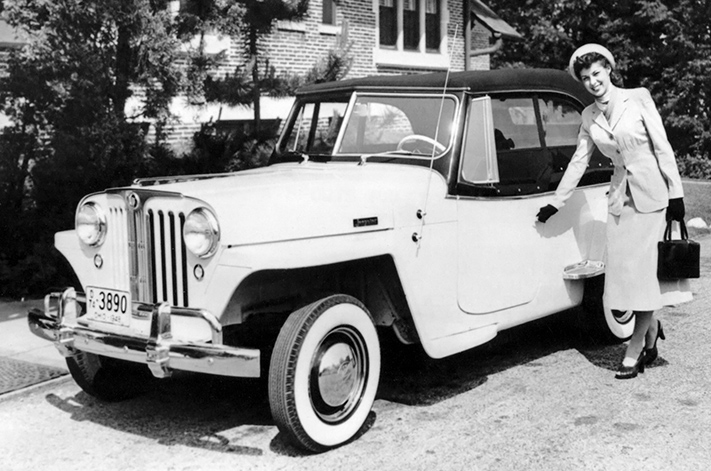
CREDIT WHERE CREDIT’S DUE
A seven-slot grille is one of a Jeep’s signature features – alongside trapezoidal wheel arches – yet it was inspired by Ford’s version of the MB, which featured a nine-slot vertical grille designed to save weight. The transfer case at the heart of the company’s four-wheel-drive system was also produced by Spicer Manufacturing – now known as Dana and which continues to supply 4WD hardware including specialised axles to Jeep.
Jeep Wagoneer Roadtrip concept
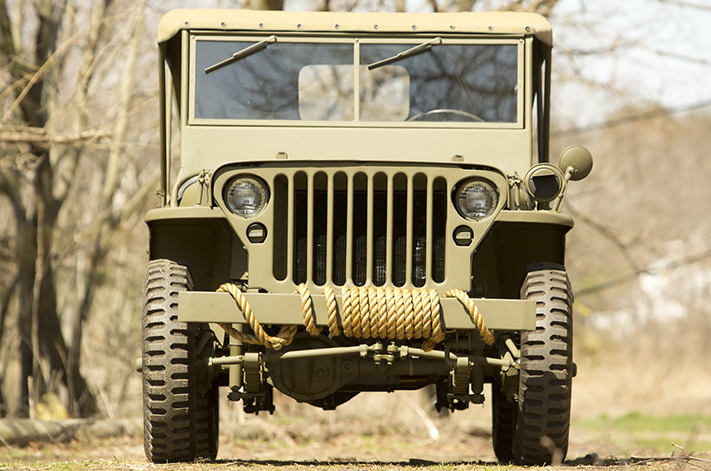
THE 28-YEAR JEEP
After various updates to the CJ and a US$60m takeover by the Kaiser Company in 1953 that led to the dropping of the Overland part of the name, the 1955 CJ-5 (and its long-wheelbase cousin, the CJ-6) brought much-improved mechanicals and cabin comfort to find popularity with buyers. The model lasted until 1983, with about 600,000 built.
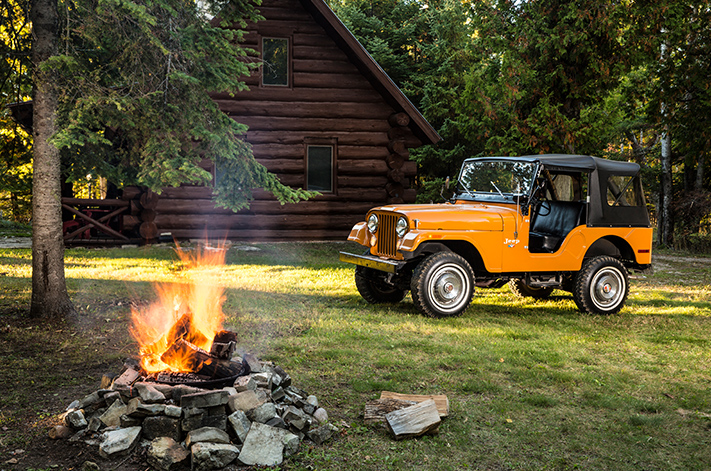
WAGONEER PIONEER
In 1963, the year Kaiser-Jeep was formed, the Wagoneer was released as the world’s first 4WD with an automatic transmission, while options included an independent front suspension. A decade later, the model added Quadra-Trac as an industry-first automatic permanent all-wheel-drive system.
AMERICA’S ANSWER TO THE RANGE ROVER
In 1984 – 14 years after Jeep had changed hands again, purchased by the American Motor Company (AMC) – the Grand Wagoneer took Jeep into luxury territory with features such as leather seats, air-conditioning, extra noise insulation, a powerful V8, and woodgrain exterior trim!
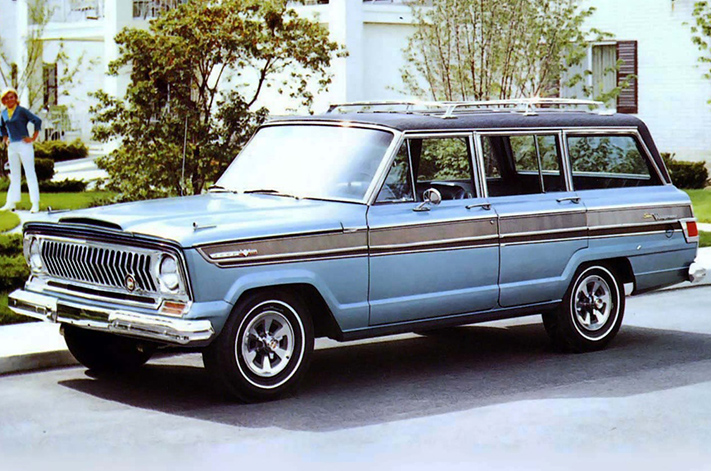
WORLD’S FIRST MODERN SUV
The first of the modern Jeep nameplates recognisable in showrooms today emerged in 1974 with the Cherokee – essentially a two-door variant of the Wagoneer aimed at younger buyers. But the second-generation model released in 1984 had greater significance. An all-new model featuring unibody rather than body-on-frame construction – as well as four doors – the Cherokee could lay claim to being the first of the modern SUV breed.
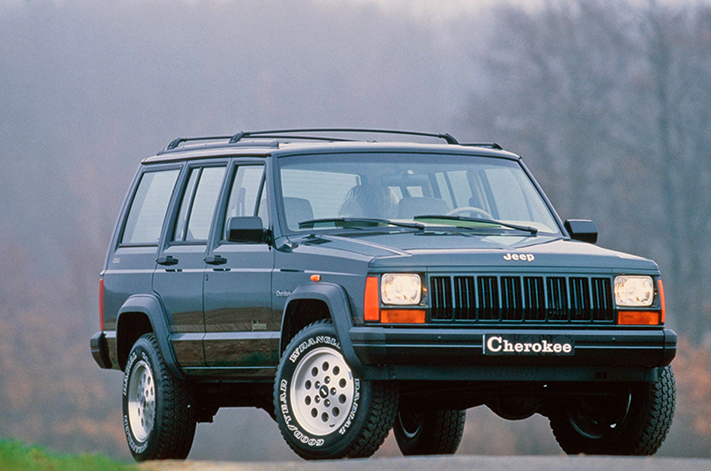
FRENCH AID; CHRYSLER RAID
AMC sales struggled during the 1970s, in contrast to Jeeps, and in 1979 Renault was approached to become a principal shareholder. Willys already had a link with the French brand, having built the Dauphine in Brazil from 1959 to 1968 under licence. The 1980s would prove to be a more challenging market for cars, however, and in 1987 AMC was purchased by Chrysler (now FiatChrysler but still the parent company).
WRANGLER
Jeep finally replaced its long-running CJ series with a model called the Wrangler. Visually it retained ties with its military origins (square headlights aside) and continued with leaf-sprung suspension, though mechanically it was more closely associated with the Cherokee. The 1997 TJ generation ramped up the comfort, switching to a coil-spring suspension based on the underpinnings of a bigger Cherokee model…
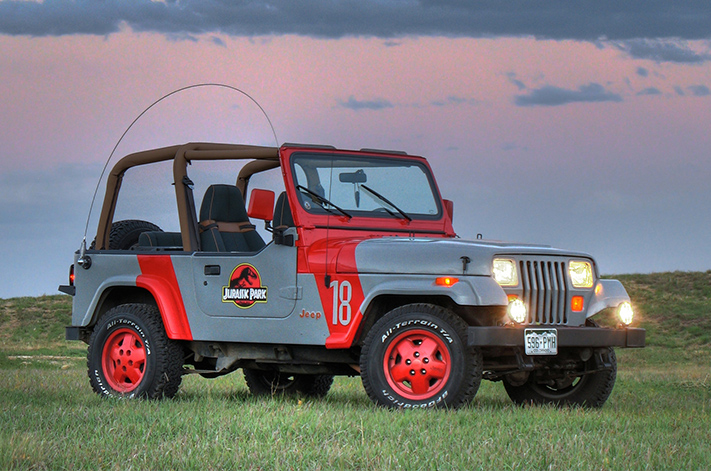
GRAND SCHEME
In the grand old days of Detroit Motor Shows – when manufacturers spent extravagant amounts of money on PR stunts – Jeep’s new Grand Cherokee made a smashing debut in 1992 by being driven through one of the convention centre’s glass windows. It was initially planned as the third-generation Cherokee before being created as a new model line with an increased luxury focus. It continues to be one of the world’s biggest-selling Jeeps.
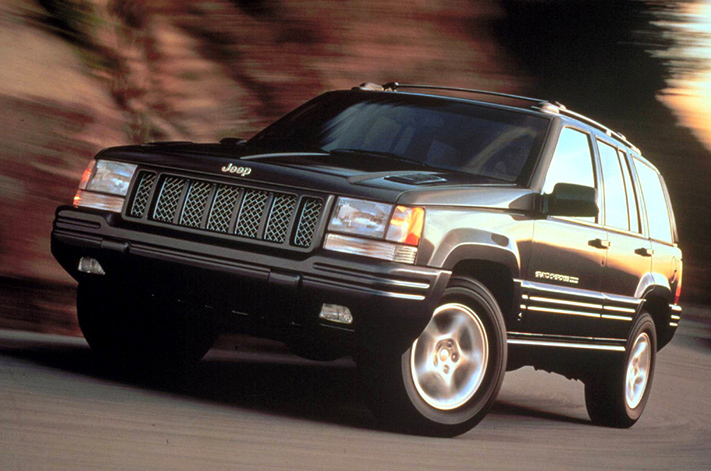
TRAIL RATED
When Jeep introduced a Trail Rated badge in 2003, it was applied to its most hardcore variants capable of tackling notorious trails such as the Rubicon. Today, though, it simply means a Jeep has proven its credentials in five areas: traction; water fording; manoeuvrability; axle articulation; ground clearance. Each Jeep model line currently offers a Trail Rated model. More recently, Jeep has been labelling variants with the highest capability ‘Trailhawk’.
EASTER JEEP SAFARI
What started as a single-trail event in 1967 to attract new visitors to the Moab area in Utah, America, has expanded into a nine-day off-roading extravaganza involving more than 120 trails and about 2000 4WDs … and dominated by the Jeep brand. Last year marked the 50th running of the Easter Jeep Safari. It has become traditional for Jeep to unveil a range of concepts showcasing the brand’s off-roading credentials and design skills.
| Jeep says ‘Happy Easter Safari’ with six new off-roader concepts
FOR TRACKS NOT TRAILS
After flirting with high-performance SUVs with its Grand Cherokee SRT, in late 2017 Jeep launched what is the world’s fastest SUV. The Grand Cherokee Trackhawk is propelled by a 527kW V8 and capable of accelerating from rest to 100km/h in 3.6 seconds, and reaching a top speed of 290km/h.
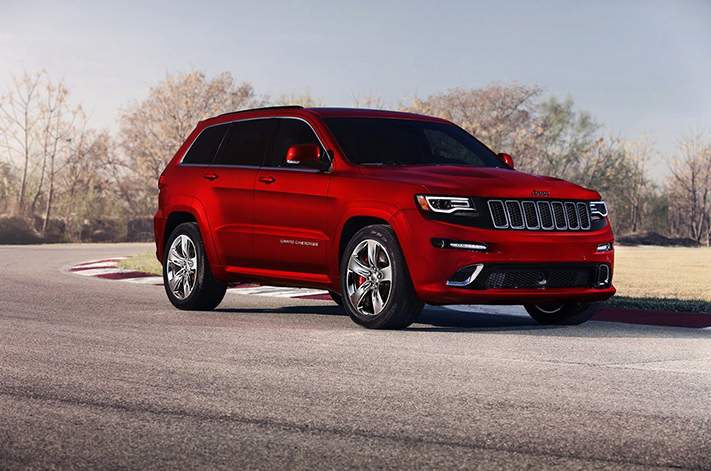
RETURN OF THE UTE
Jeep revived the Gladiator name in 2019 to welcome a ute-based variant of the Wrangler. It was only a matter of time, considering the huge interest of utes in Australia – and in fact, the world.


